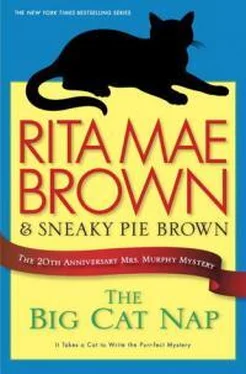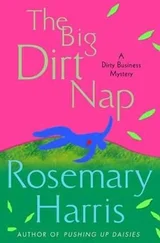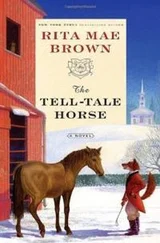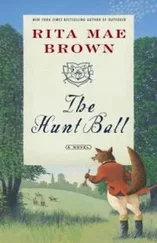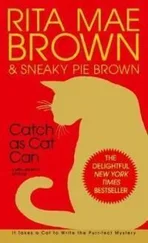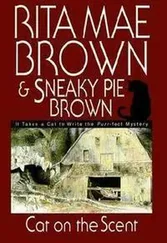“Heavenly Father, grant to these thy servants the warmth of thy love. Help them through this sorrowful trial. Let them know their daughter now resides with you, secure in the bosom of heaven. In time they will be reunited with Tara in great rejoicing.
“Grant them knowledge of her spirit united with your Son. Give them peace and show all of us the way to help Sharon and Artie transform their sorrows into deeper love.
“In the name of the Father, the Son, and the Holy Ghost.” Tears spilled down his red cheeks.
Sharon sobbed. Artie put his arm around his wife of thirty-two years. He cried, as well.
Finally, Artie rasped, “Reverend, I don’t know if I will ever understand. Friends told me at the funeral, this is God’s will. How can it be God’s will to take our girl in such a horrible way?”
Tara, driving her old but sturdy Ford Explorer, was killed in a freak accident on the two-lane highway from Crozet to Whitehall. The old road contained numerous blind curves. Years ago, paving it was seen as a great victory by the state representative and by many residents. Others thought differently. Too much speed on a dirt road meant you’d skid out, your hind end would crunch sideways. You might go off the road. Or you might dampen your speed. Rarely were there deaths, although there were sure enough cars that crashed through wooden fences and wound up in the pastures. The paved road encouraged development, which in turn encouraged more traffic at faster speeds.
According to the team investigating the fatal crash, Tara was going the speed limit. She was on her way home to Crozet, heading south from Whitehall. As she approached a curve just beyond Chuck Pinnell’s leather business—formerly a large apple shed—a deer leapt out, crashing through the driver’s side windshield. Tara swerved her Explorer into oncoming traffic—which happened to be a mighty Range Rover, flying along at ten miles over the speed limit.
By the time the rescue squad was on the scene, Tara had bled to death. The driver of the Range Rover would never be the same. His only fault was speeding, but no one could foresee such an event.
Tara, just twenty-five, brimming with promise and so very pretty, had been the Meolas’ only child.
After a half hour of talking, praying, drawing closer together, Sharon asked Herb to please have a bit of lunch with them.
Some people would have refused this, fearing to put the distraught mother to more trouble, but Herb, wise in the ways of people and especially wise in the ways of Virginia ladies, readily agreed. Preparing the meal would give Sharon something to do, something at which she excelled.
She and Artie talked the whole way through a light delicious lunch about Tara’s dreams, her dating, and what a good volleyball player she was in high school and college. It was a way to keep her with them. In time, the stories of their daughter would subside, as would the grief. The questions over God’s plan, however, would never subside.
Herb, unlike many priests, ministers, and pastors, didn’t have a ready bag of pat answers. He couldn’t understand why snatching a lovely, good girl entering the prime of her life could serve any earthly purpose.
He had seen Tara grow up. He’d taught her catechism for two years, for which Tara evidenced little enthusiasm. She used to make him laugh and remember that when he was her age, he lacked enthusiasm for catechism, as well. When she took her first communion after the simple confirmation ceremony, she looked up at him in his vestments and he had to fight the urge to wink at her.
As Herb drove back to St. Luke’s—his Chevy running like a top after being fixed—he, too, asked God unsettling questions. The answers he received were the ones he always received: Faith. Trust. Love. He first heard that call as a young soldier in Vietnam. Back stateside, filled with dreadful memories of the horrors of combat, he entered seminary. Decades later: faith, trust, and love. Like most of us in this life, he had no assurance that his efforts truly helped anyone, but he nevertheless tried. He prayed for Tara and her parents and would continue to pray for them often.
With a heavy heart, he walked into the beautiful stone administrative building on the St. Luke’s quad. He passed his secretary, Lenore Siebert, who was about the same age as Tara. She opened her mouth, but before anything came out, Big Mim walked out of the living room, which was really a meeting room. Three cats and Miranda followed behind her.
Big Mim took his hand while Miranda took the other one. They walked him into the room, its windows wide open, and sat him down.
Big Mim took charge, as always. “Nothing can make this better, but we have something that might let the Meolas know how deeply we all care.”
Miranda handed Herb an envelope. “This is a start. Big Mim called everyone in the parish, and the two of us made the rounds.”
Big Mim smiled. “Open it.”
Inside the envelope was a check for five thousand dollars, made out to the Tara Meola Scholarship Fund.
“Girls.” Herb’s eyes filled up again.
“Each year we will raise this amount or maybe more. We will ask Sharon and Artie to select a young person entering college who they think reflects some of their daughter’s wonderful qualities.” Big Mim, not always the most sensitive of people, smiled.
“Girls,” Herb repeated himself.
He was as moved by Big Mim’s compassion as the check. The old girl was changing.
Elocution, knowing her human was overcome, jumped on the back of the sofa and put a paw on his shoulder to give him a kiss with her rough tongue. “It’s all right, Poppy.”
“Miranda was with me every step of the way, even if she isn’t a Lutheran.” Big Mim reached for Miranda’s hand. “And so was Victor Gatzembizi. Catholic, you know. So many people pitched in.”
Herb held the check, studied it, glanced at the two old friends. “ ‘God moves in a mysterious way. His wonders to perform.’ ”

S tanding in the equipment shed where the big tractor sat, as well as the smaller, thirty-horsepower unit, Harry took off her ball cap, throwing it on the crusher run. “I am bullshit mad.”
Fair burst out laughing. He couldn’t help it.
“Oh, boy, she’ll really get hot now.” Tucker stepped farther away from the humans.
Mrs. Murphy and Pewter, perched on the high tractor seat of the eighty-horsepower John Deere, watched, big-eyed.
“What’s funny? What’s so damned funny?” Not a woman given to profanity, Harry was losing her composure.
“Baby, you’re acting just like your father.” Fair put his hands in his pockets.
A long pause followed, then Harry laughed. “Daddy did have a habit of throwing his cap down, didn’t he?”
“Hey, when his Orioles cap hit the dirt, you knew to clear out.” Fair laughed. “The apple doesn’t fall far from the tree.”
Her voice lightened. “Well, I am mad. I shouldn’t swear about it, but, Fair, if you could have heard that twit. Sanctimonious twit.”
“He’s not my favorite, but I only see Yancy Hampton in passing.”
“Fair, he gave me a decent price for the sunflowers per hundredweight. But I just don’t know if I can do business with him. I really don’t.”
“Why don’t you wait a few days before making that decision? An early purchase is a hedge against a drop in prices. Then again, it’s a loss if prices rise—but you know that as well as I do, honey. Mother Nature can and does throw plenty of curveballs. Plus, Hampton’s money might help pay the tractor repair bill.”
“I know.” She leaned against the big tractor, unaware that the two cats looked down at her from the seat. “I canceled the tractor pickup. Too much money. I’ll try to get Dabney Farnese to fix it. It will take longer, but he’s reasonable.”
Читать дальше
